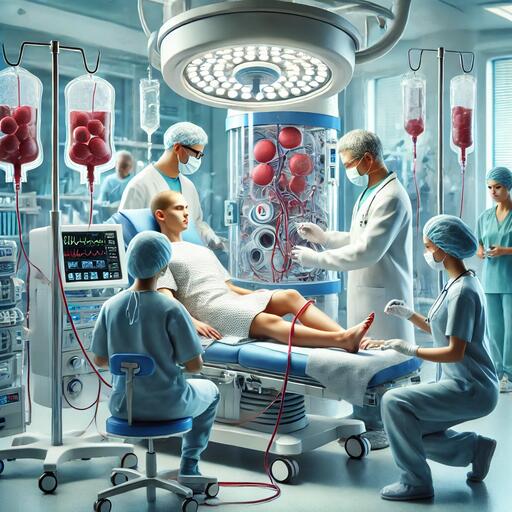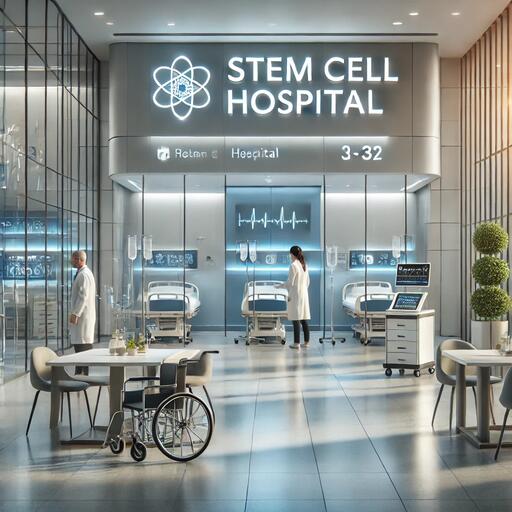Stem Cell Transplant is a life-saving procedure used to treat various cancers and blood disorders by replacing damaged or diseased bone marrow with healthy stem cells. This cutting-edge therapy is primarily used for conditions like leukemia, lymphoma, and multiple myeloma. In this guide, we will explore the top hospitals in India offering Stem Cell Transplants, the cost, and the different types of transplants available.
Medical disclaimer: This content is for general awareness and does not replace a doctor’s consultation. For diagnosis or treatment decisions, consult a qualified specialist.

What is a Stem Cell Transplant?
A Stem Cell Transplant is a medical procedure used to replace damaged or diseased bone marrow with healthy stem cells. It is most often performed for patients suffering from blood cancers such as leukemia and lymphoma, as well as for some genetic blood disorders. The transplanted stem cells help restore the body’s ability to produce healthy blood cells.
Types of Stem Cell Transplants
There are two primary types of Stem Cell Transplants:
- Autologous Transplant: In this type, the patient's own stem cells are harvested, stored, and reinfused after treatment like chemotherapy.
- Allogeneic Transplant: This involves stem cells from a donor, which can be a sibling or an unrelated donor, depending on the compatibility of the tissue type.
How Does Stem Cell Transplant Work?
The process begins with collecting stem cells, either from the patient or a donor. The patient undergoes high-dose chemotherapy or radiation therapy to eliminate diseased cells. After this conditioning, the harvested or donor stem cells are infused into the patient’s bloodstream, where they migrate to the bone marrow and begin to produce healthy blood cells.
Benefits of Stem Cell Transplants
Stem Cell Transplants offer hope to patients with conditions that were once considered untreatable. It can lead to a long-term remission or even cure for patients with leukemia, lymphoma, and other blood disorders. In cases of genetic blood diseases, it can completely replace faulty bone marrow with healthy cells.

Top Hospitals Offering Stem Cell Transplant in India
Several world-renowned hospitals in India offer high-quality Stem Cell Transplant services at a fraction of the cost compared to Western countries. Leading hospitals include Tata Memorial Hospital in Mumbai, All India Institute of Medical Sciences (AIIMS) in Delhi, and CMC Vellore. These institutions have excellent success rates and follow stringent international protocols.
Cost of Stem Cell Transplant in India
The cost of Stem Cell Transplant in India varies depending on the type of transplant, the hospital, and the patient’s specific condition. On average, an autologous transplant costs between ₹15 lakh and ₹20 lakh, while an allogeneic transplant may range from ₹25 lakh to ₹40 lakh. Despite these costs, Stem Cell Transplant in India remains significantly more affordable than in many Western countries, where the procedure can exceed ₹1 crore.
Stem Cell Transplant Success Rates
Success rates for Stem Cell Transplant depend on the patient’s condition, age, and other factors. For patients with leukemia and lymphoma, the success rate can be as high as 60-80% with proper treatment and aftercare. For genetic blood disorders, like thalassemia or sickle cell anemia, Stem Cell Transplant often leads to a permanent cure.

Patient Experiences with Stem Cell Transplant
Many patients who have undergone Stem Cell Transplants in India report positive outcomes, including improved quality of life and long-term remission. While the procedure is not without risks, most patients find the benefits far outweigh any potential complications.
Frequently Asked Questions (FAQs) About Stem Cell Transplant in India
What is the cost of Stem Cell Transplant in India?
The cost varies depending on the type of transplant and the hospital. On average, it ranges from ₹15 lakh to ₹40 lakh.
Which hospitals offer Stem Cell Transplant in India?
Top hospitals include Tata Memorial Hospital in Mumbai, AIIMS in Delhi, and CMC Vellore.
Is Stem Cell Transplant a cure for leukemia and lymphoma?
In many cases, yes. Stem Cell Transplant can offer a cure or long-term remission for leukemia, lymphoma, and other blood disorders.
Are there any risks associated with Stem Cell Transplant?
Yes, like any medical procedure, Stem Cell Transplant comes with risks such as graft-versus-host disease (GVHD), infection, and organ damage. However, these risks are carefully managed by the medical team.
How long does recovery take after a Stem Cell Transplant?
Recovery can take several months. Patients need to follow up closely with their doctors to monitor their health and manage any potential complications.
What is the success rate of Stem Cell Transplant?
Success rates can range from 60-80%, depending on the patient's condition, age, and other factors. For genetic disorders, Stem Cell Transplant is often curative.
Updated for 2025 – Learn about Stem Cell Transplant in India, including top hospitals, costs, procedures, and patient experiences. Stem Cell Transplant Cost in India